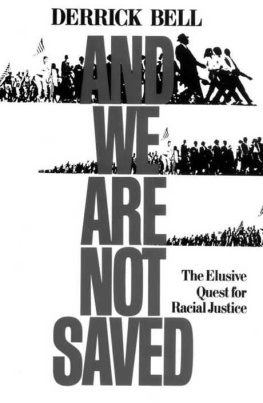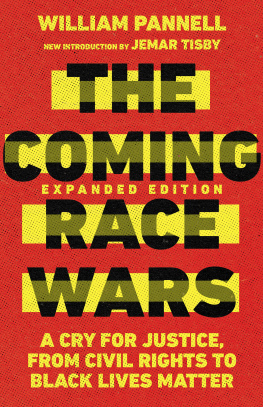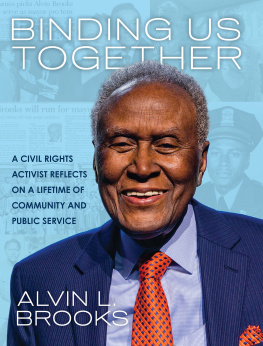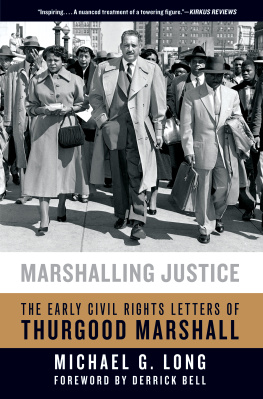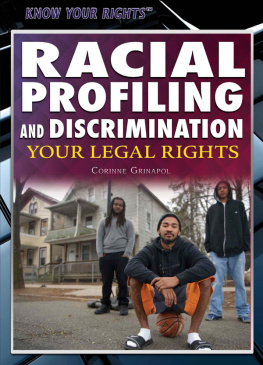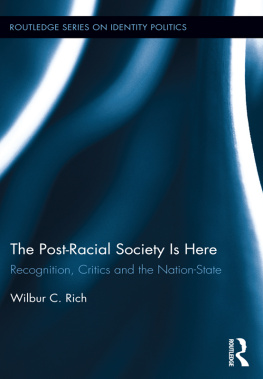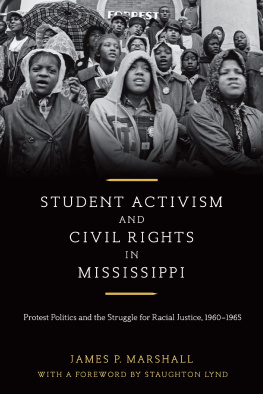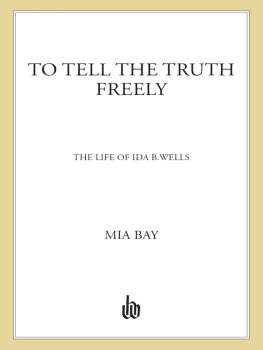And We Are Not Saved
And We Are
Not Saved
The Elusive Quest for
Racial justice
With a New Appendix for Classroom Discussion
DERRICK BELL




To Ada Elisabeth Bell, my mother; to jewel Hairston Bell, my wife; and to all our Genevas
The harvest is past, the summer is ended, and we are not saved.
-JEREMIAH 8:20
Contents
xi
PART I
The Legal Hurdles to Racial Justice
Chapter 26
THE CHRONICLE OF THE CONSTITUTIONAL CONTRADICTION
Chapter 51
THE CHRONICLE OF THE CELESTIAL CURIA
Chapter 75
THE CHRONICLE OF THE ULTIMATE VOTING RIGHTS ACT
Chapter 102
THE CHRONICLE OF THE SACRIFICED BLACK SCHOOLCHILDREN
Chapter 123
THE CHRONICLE OF THE BLACK REPARATIONS FOUNDATION
Chapter 140
THE CHRONICLE OF THE DeVINE GIFT
THE CHRONICLE OF THE AMBER CLOUD
PART II
The Social Affliction of Racism
THE CHRONICLE OF THE TWENTY-SEVENTH-YEAR SYNDROME
Chapter 215
THE CHRONICLE OF THE SLAVE SCROLLS
PART III
Divining a Nation's Salvation
THE CHRONICLE OF THE BLACK CRIME CURE
Preface
THE HEROINE of my book, Geneva Crenshaw, and her Chronicles owe their being to America's most prestigious legal periodical, the Harvard Law Review, and its annual practice of inviting a legal scholar to write the foreword to the Supreme Court issue. The roll of past foreword authors is impressive, and, to put it mildly, I did not expect to join the list. When the editorial board of volume 99 selected me to write its foreword in 1985, I doubted whether they would take kindly to a radical departure from the doctrinal analysis of the Supreme Court's work, an analysis that previous authors have undertaken with great competence. And yet I wanted to examine from a new perspective-beyond even the most exacting exegesis of case decisions-the civil rights movement since 1954 and the Brown school decision: that is, to explain or justify what has happened, or not happened, and how black people (or some of us) feel about it.
The civil rights movement is, after all, much more than the totality of the judicial decisions, the antidiscrimination laws, and the changes in racial relationships reflected in those legal milestones. The movement is a spiritual manifestation of the continuing faith of a people who have never truly gained their rights in a nation committed by its basic law to the freedom of all. For my foreword, then, I sought a method of expression adequate to the phenomenon of rights gained, then lost, then gained again-a phenomenon that continues to surprise even though the cyclical experience of blacks in this country predates the Constitution by more than one hundred years.
As the deadline for the article hovered imminent, there came to my rescue Geneva Crenshaw and her tales, challenging the ac cepted view of how blacks gain, or might gain, from civil rights laws and policies. Thereafter the writing, while not easy, became a labor of enormous fulfillment. And to my great relief, the Harvard Law Review editors accepted my unorthodox approach and contributed their energy, skill, and enthusiasm to the editing process. Carol Steiker, the Review's president for volume 99, Elena Kagan, supervising editor, William Forbush, executive editor, and several staff members became collaborators in the challenge to express jurisprudential matters of significant importance in a language and format more usual in literature than in law.
Encouragement and sound advice for both the article and this book came from a host of friends, family, teaching colleagues, and students. My long-time friend, Teachers College of Columbia University Professor Diane Ravitch, disagreed with some aspects of my thesis but enthusiastically recommended the work to her publisher, Martin Kessler, president and editorial director of Basic Books. Mr. Kessler graciously offered to serve as general editor and, having helped shape the book's structure, assigned copyediting responsibility to Phoebe Hoss, whose fiction-writing skills, careful eye, and infinite patience reduced the gap between my thoughts and their expression. Linda Carbone handled the production chores efficiently and quickly. My thanks to family members, and the many friends, colleagues, and students, especially the members of my Fall 1986 seminar, "Civil Rights at the Crossroads," all of whom reviewed chapters and offered suggestions. I want to thank particularly Sharon Carter, Dr. Jane DeGidio, Paul Dimond, Lani Guinier, Elena Kagan, Elaine McGrath, Stephanie Moore, Audrey Selden, Carol Steiker, Gloria Valencia-Weber, and professors Regina Austin, Denise Carty-Bennia, Linda Greene, Joel F. Handler, Randall Kennedy, Henry W. McGee, Jr., Arthur S. Miller, Daniel J. Monti, Cass Sunstein, and Patricia Williams. Ken Diamond and Elizabeth Wilkerson at Stanford and Rodney Akers and Areva Bell at Harvard provided research assistance, and Marian Holys at Stanford and Debra Ayles at Harvard handled secretarial chores. The Harvard Law School Summer Research Project granted financial support.
And We Are Not Saved
Introduction
JEREMIAH's lament that "we are not saved" echoes down through the ages and gives appropriate voice to present concerns of those who, flushed with the enthusiasm generated by the Supreme Court's 1954 holding that segregated public schools are unconstitutional, pledged publicly that the progeny of America's slaves would at last be "Free by 1963," the centennial of the Emancipation Proclamation. That pledge became the motto for the National Association for the Advancement of Colored People's 1959 convention in New York City, where were gathered, in jubilant euphoria, veterans of racial bias and society's hostility who believed that they had finally, and permanently, achieved the reform of the laws that had been for a century vehicles for the oppression of black men, women, and children. Not even the most skeptical at that convention could have foreseen that, less than three decades later, that achievement would be so eroded as to bring us once again into fateful and frightful coincidence with Jeremiah's lament.
With the realization that the salvation of racial equality has eluded us again, questions arise from the ashes of our expectations: How have we failed-and why? What does this failure mean-for black people and for whites? Where do we go from here? Should we redirect the quest for racial justice? A response to those questions-more accurately, a series of responses-is the purpose of this book. Rather than offering definitive answers, I hope, as law teacher rather than social seer, mainly to provoke discussion that will provide new insights and prompt more effective strategies.

